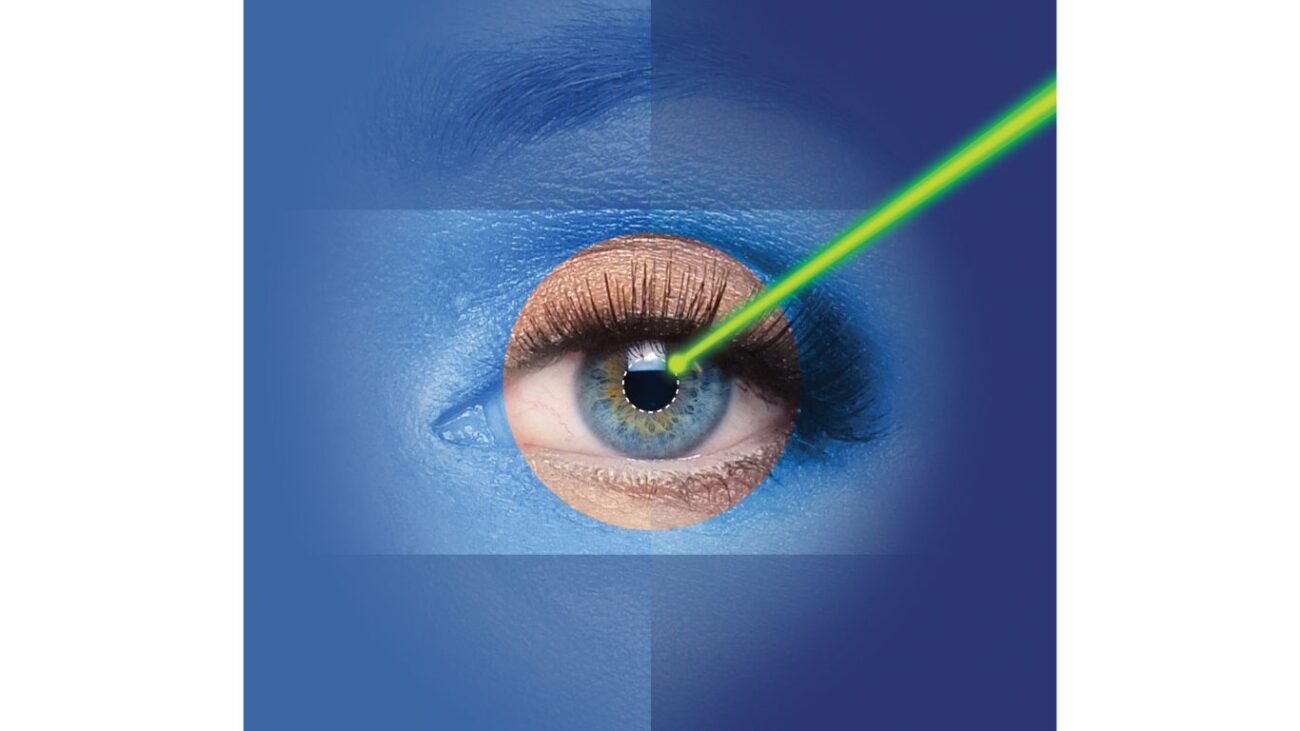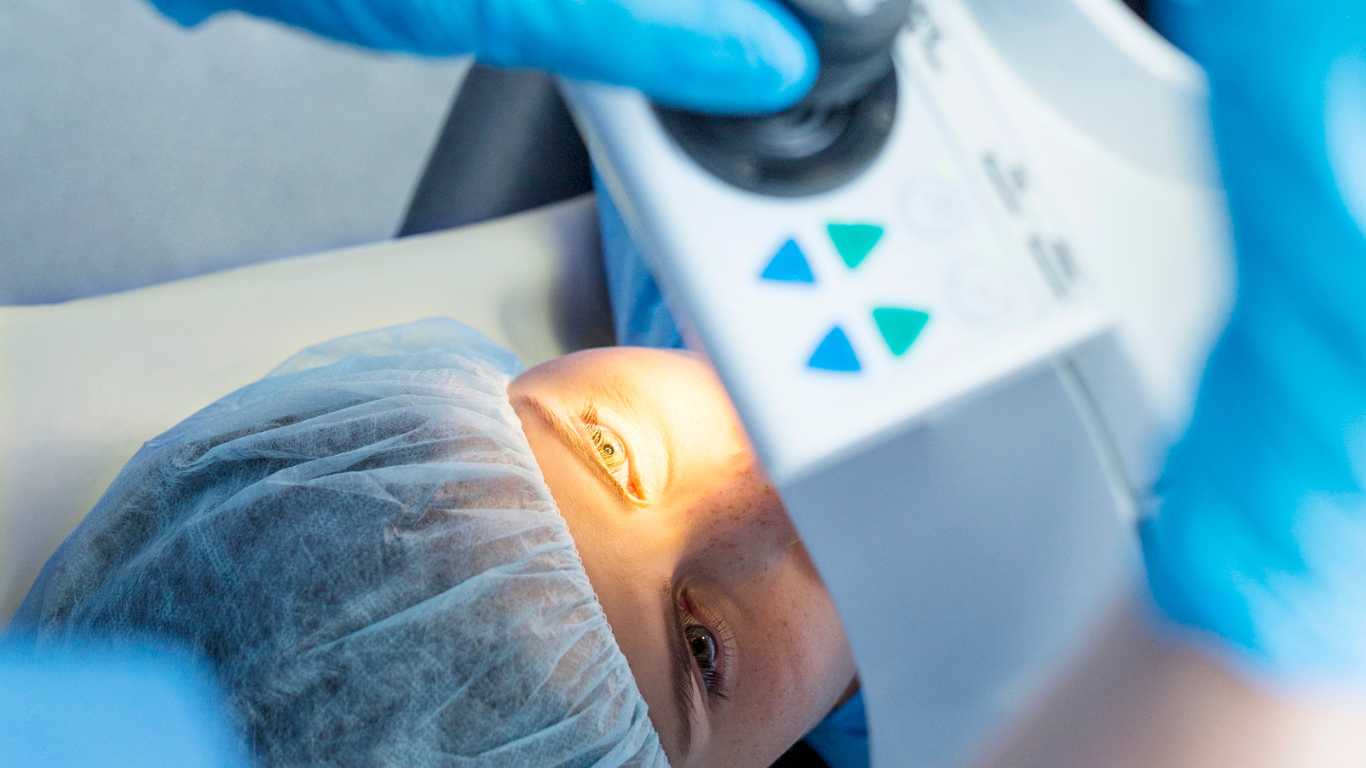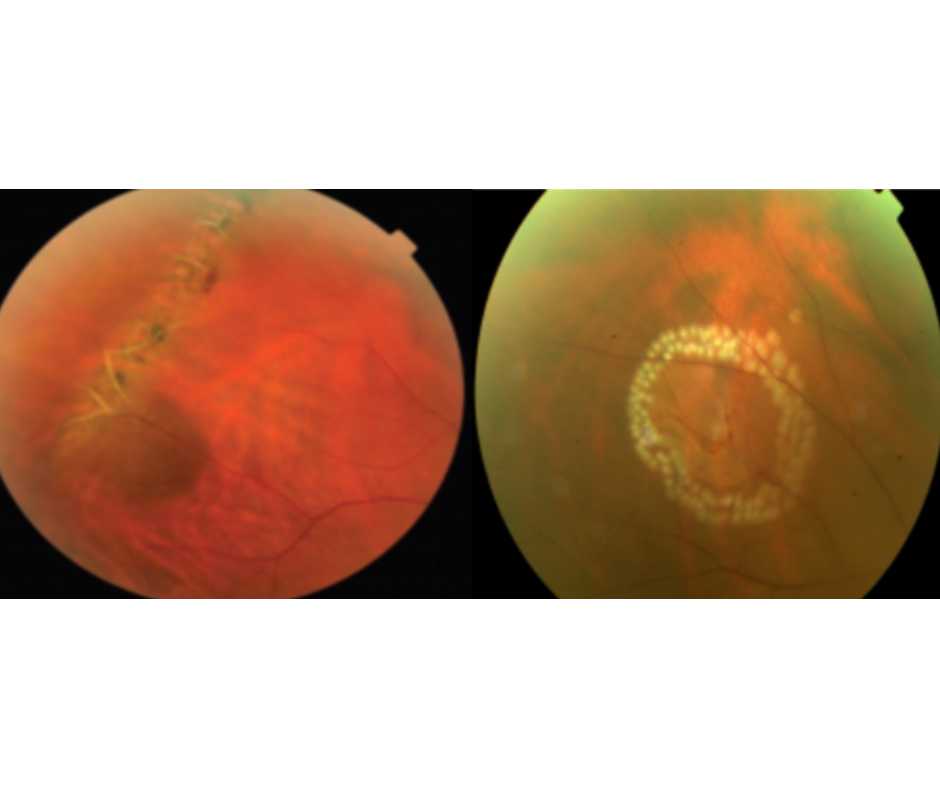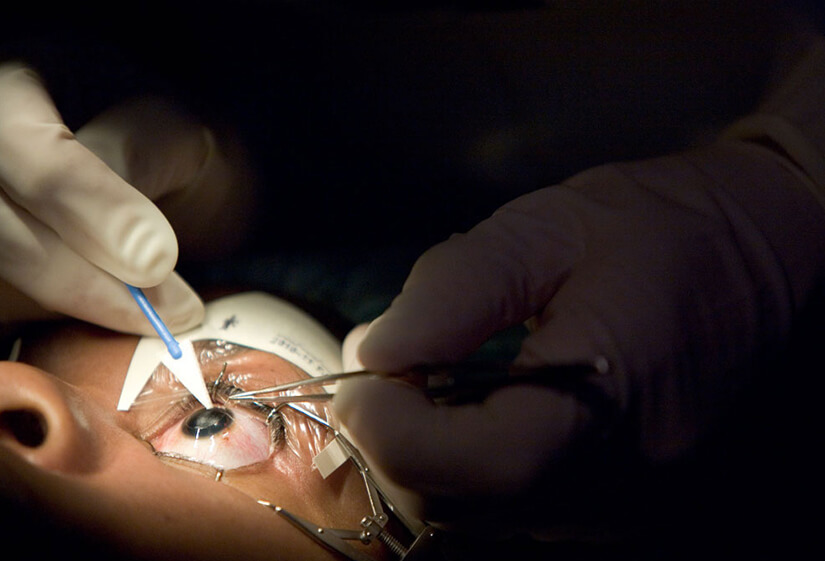Introduction:
Imagine waking up in the morning and seeing the world with crystal-clear vision, without the need to fumble for glasses or insert contact lenses. This dream can become a reality with laser eye surgery, a cutting-edge medical procedure that has transformed the lives of millions.
Understanding Vision Problems:
Before delving into laser eye surgery, let’s understand the common vision issues that plague many individuals. Nearsightedness (myopia), farsightedness (hyperopia), and astigmatism are among the most prevalent problems.
What is Laser eye operation?

Laser eye surgery, also known as refractive surgery, is a remarkable medical advancement designed to correct vision problems. It offers several types of procedures, each tailored to address specific issues. These procedures include LASIK, PRK, and SMILE, among others.
The Procedure Unveiled:
Pre-Surgery Assessment
Before undergoing laser eye surgery, a thorough examination of your eyes is essential. This assessment helps the surgeon determine if you are a suitable candidate and which specific procedure is best for your needs.
The Surgical Process
During the surgery, a precise laser is used to reshape the cornea, correcting the refractive error causing your vision problems. The entire procedure is usually completed within minutes and is virtually painless.
Post-Surgery Recovery
Recovery is typically quick, with most patients experiencing improved vision within a day or two. However, it’s crucial to follow post-operative instructions to ensure optimal results.
Benefits of Laser eye operation:
The benefits of laser eye surgery extend far beyond the convenience of ditching glasses and contact lenses. Enhanced visual clarity, increased independence, and long-term cost savings are just a few of the advantages.
Risks and Considerations
While laser eye surgery offers remarkable benefits, it’s not without risks. Potential side effects may include dry eyes, glare, and halos around lights. It’s essential to weigh these risks against the benefits before proceeding.
Choosing the Right Surgeon
Selecting the right surgeon is paramount to a successful outcome. Thoroughly researching potential surgeons, checking their credentials, and reading patient reviews and testimonials can help you make an informed decision.
The Cost of Clarity
The cost of laser eye surgery varies depending on several factors, including the type of procedure and location. While it may seem expensive upfront, it’s essential to consider the long-term savings on glasses and contacts.
Life After Laser Eye Surgery
After the procedure, life takes on a new perspective. You can enjoy activities like swimming and sports without the hindrance of corrective lenses. However, post-surgery eye care is crucial to maintaining your newfound visual clarity.
Frequently Asked Questions:
What is the success rate of laser eye surgery?
Laser eye surgery boasts an impressive success rate, with the majority of patients achieving 20/20 vision or better.
Is laser eye surgery painful?
The procedure itself is virtually painless. Some patients may experience minor discomfort or irritation in the days following surgery, but this typically subsides quickly.
Can I drive immediately after the procedure?
Most patients are advised not to drive immediately after surgery and should arrange for transportation home.
Are there any long-term risks?
While rare, long-term risks may include regression of vision or persistent dry eyes. These risks should be discussed with your surgeon during the consultation.
How do I maintain my post-surgery eye health?
Regular check-ups with your eye care professional and following post-operative care instructions are essential for maintaining your eye health.
Conclusion:
Laser eye operation has paved the way for a world where visual clarity is attainable for many. The freedom from glasses and contacts is a life-changing experience. However, it’s vital to approach this decision with careful consideration, understanding the risks and rewards. If you seek a future with clearer vision and greater independence, laser eye surgery could be your key to unlocking it.












